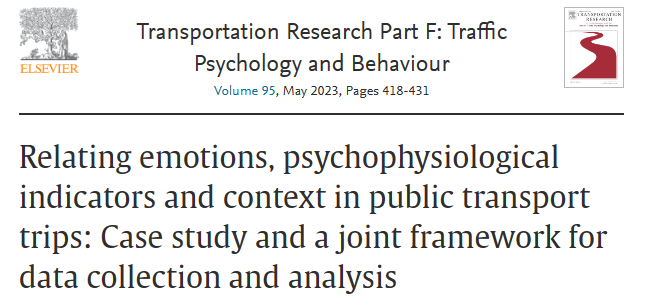Carlos Barría , C. Angelo Guevara , Angel Jimenez-Molina , Sebastian Seriani
Abstract
This study proposes an experimental framework for collecting on-board data on users’ emotions, psychophysiological indicators, and context, to characterize their experience in a granular, scalable, non-intrusive, and ecological way. To gather emotions data, clustering techniques are used to adapt Russell’s circumplex model to a transport framework, allowing data to be collected on-board using a smartphone application. For psychophysiological indicators, a specially designed portable PCB (Biomonitor 2.0) is used to record heart rate, heart rate variation, skin temperature, and electrodermal activity with high frequency and fidelity. Context information is collected using ambient sensors and a smartphone application. A proof-of-concept case study is conducted on 44 engineering students traveling for 2.5 hours on various public transport modes in Santiago, Chile, including an autonomous vehicle. The results show that the framework is feasible, and that emotions data can be effectively related to granular records of psychophysiological indicators and context using a discrete choice model. This study sets a precedent for future research to incorporate new granular public transport user satisfaction indicators based on emotions inferred from psychophysiological data and detect causal factors related to users’ physical, emotional, and cognitive state.
